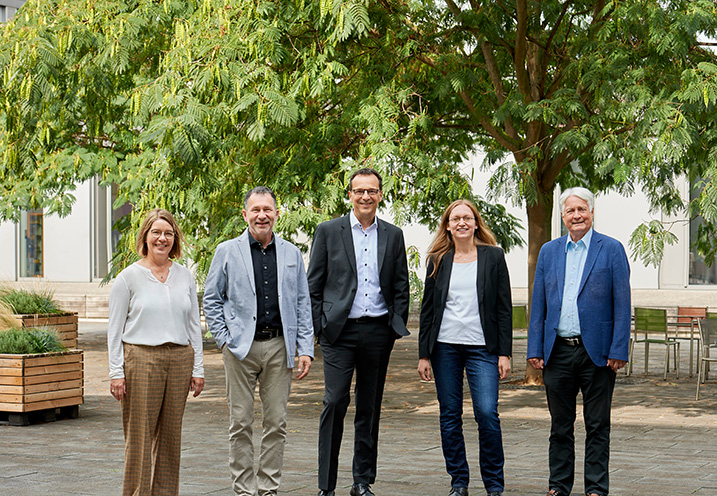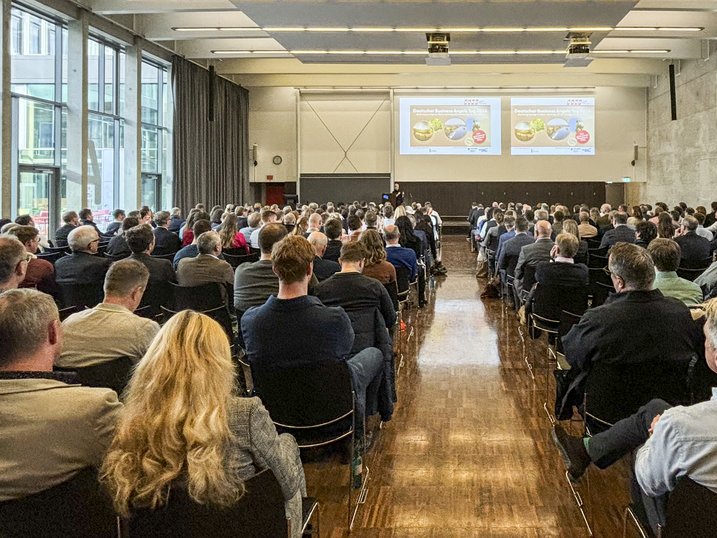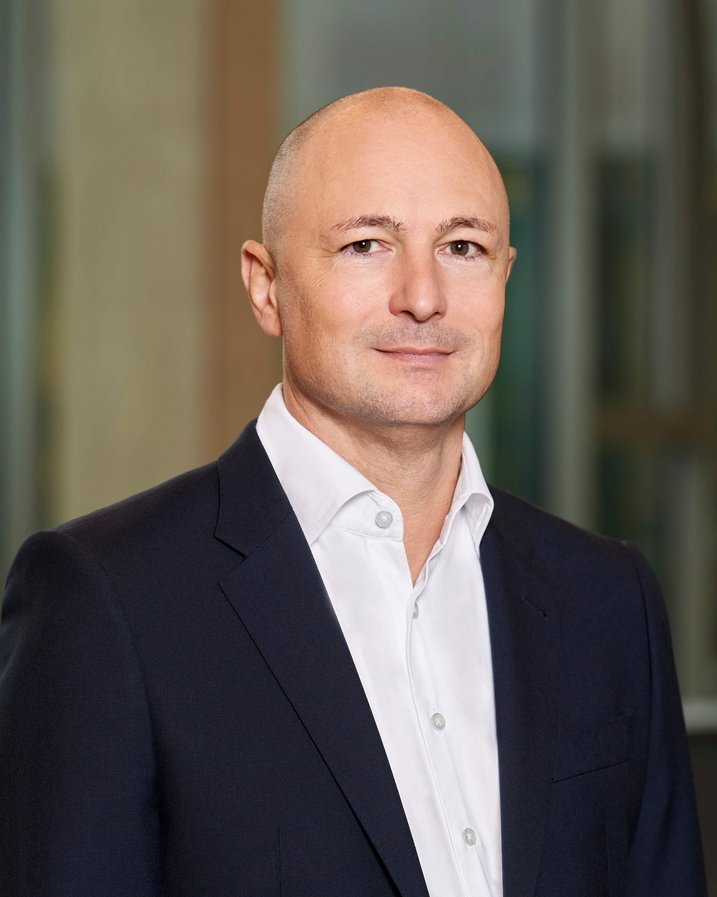Once again, this year the HR Campus team of Mainz University of Applied Sciences invited representatives from the business, political and scientifc sectors to shed light on the topic of Remote Leadership – Leading from a Distance at the 13th HR Forum.
Before an audience of almost 80 guests, University President Professor Dr. Susanne Weissman and Manuela Matz, Head of Economic Affairs for the Rhineland-Palatinate state capital of Mainz, highlighted the relevance and cutting-edge nature of the topic in their opening remarks.
The spokesperson of the HR Campus Team, Professor Dr. Susanne Rank kicked off the HR Forum with an introduction on the topic of Mobile Working and Remote Leadership and called for the use of the flexibility and openness to change gained from the shift to hybrid working to continue in the next transformations. This overview was then further elaborated in a dedicated presentation by students Sarah Sansli and Lorena Busch from the part-time Master’s in Management degree program: They identified the challenges and limitations of traditional leadership, as well as the resulting success factors for successful virtual leadership: mutual trust, social networking, and perceived ownership.


 Photos by Nathalie Zimmermann
Photos by Nathalie Zimmermann
Building on this, specialized areas and concrete implementations in the business world were presented and discussed in depth in the ensuing three forums:
In FORUM 1, Professor Dr. habil. Katharina Dahm from Mainz University of Applied Sciences gave a very extensive presentation on the labor law aspects of working from home and the impact of current legislation on mandatory time tracking on the topic of virtual working.
Dr. Nina Moyer, Head of Human Resources at SCHOTT AG, then shared her experiences with the introduction of working from home at her company in a very practical and open manner with those present. In the subsequent discussion under the academic moderation of Professor Dr. Maria Strobel, questions on the successful introduction, on the legally compliant introduction or termination of working from home, and on the almost contradictory case law on the mandatory tracking of working hours were controversially discussed.
In FORUM 2, Managing Director Andrea Strein and Human Resources Manager Sarah Barhoum from Weber-Stephen Deutschland GmbH presented the challenges for managers in implementing virtual collaboration at Weber-Grill. In the process, they showed how a necessity of functional collaboration and shared experience derived from the business model can also be implemented under ‘New Work conditions.’ The hybrid model developed by the company is based on clear guidelines, such as a fixed on-site presence on Weber-Wednesday, improved clarity of goals and roles, a results orientation, clear guidelines for core working hours and defined ‘no-meeting times’, but it is also characterized by freedom, such as the free choice of work location for eight specified weeks of the year – topics that were very well received in the subsequent academic moderation by Professor Susanne Rank.
FORUM 3 focused on the architectural and construction aspects necessitated by mobile working. The question of how new office environments should be designed to support the changed communication and interaction needs of companies was presented by Renate Lugmair, HR Director Northern Europe Region, using the example of Coface Germany. Here and in the subsequent discussion moderated by Professor Dr. Norbert Rohleder, it became clear that the new office concepts must be designed to both support physical on-site collaboration and act as drivers for cultural change.
The concluding panel discussion with company representatives and participants, moderated by Professor Dr. Michael Christ and Professor Dr. Norbert Rohleder, rounded off and summarized the topics discussed.
The critical success factors and key fields of action that make remote leadership successful became apparent once again. Intensive discussions were held, for example, on how to deal with the problem of the divide between employees with a New Work approach and those staff groups whose responsibilities require them to be present at the company, or how to create loyalty despite the absence of a connection. It was shown that an open, trusting, and adaptable corporate and management culture must be viewed and developed as core elements of a successful approach to virtual work.




